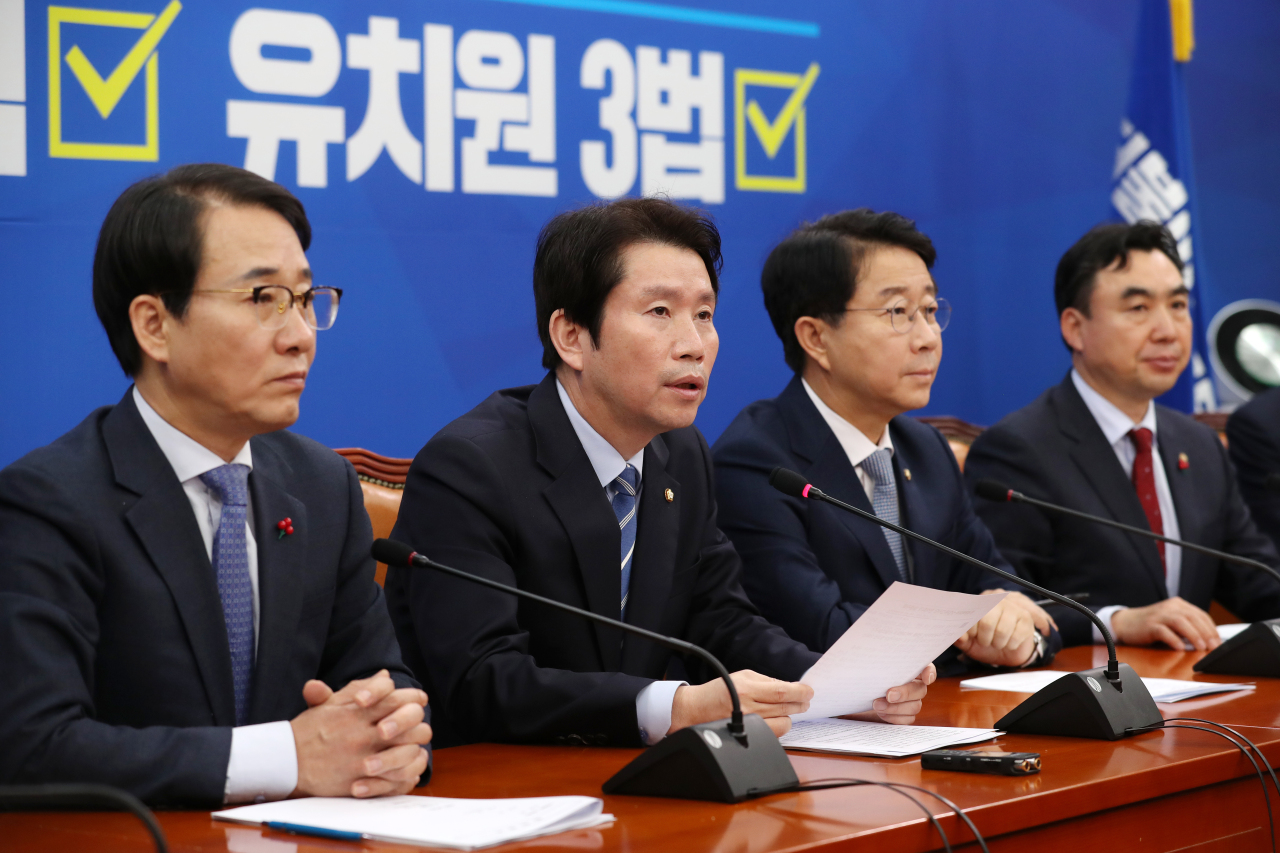Rival parties seek breakthrough over electoral reform bill on fast track
By YonhapPublished : Dec. 17, 2019 - 21:37
Rival political parties resumed negotiations Tuesday to produce an agreement over a contentious electoral reform bill currently in a parliamentary fast-track process.
The floor leaders and ranking officials from the ruling Democratic Party (DP), three minor parties and one fringe group met for talks at 9 p.m. to seek a breakthrough.
The so-called four plus one consultative body has been in talks to fine-tune the fast-track legislation. But negotiations hit a snag over the details of an electoral reform bill aimed at adopting a new proportional representation system.
In April, the DP and three smaller parties reached an agreement on a reform bill and put it on a parliamentary fast track, along with bills designed to check the power of the state prosecutors office.

The parties are seeking to introduce a mixed-member proportional (MMP) representation system in which parliamentary seats are tied to the percentage of voters' support for parties.
Despite such efforts, the main opposition Liberty Korea Party (LKP) has vehemently opposed the passage of the fast-track legislation. Smaller rivals of the DP also expressed complaints about an attempt to revise details of the election reform bill in accordance with party interests.
Under the April deal, the number of proportional representation (PR) slots would be boosted to 75 from the current 47, while the total number of parliamentary seats would be kept unchanged at 300.
The DP and its smaller rivals are now seeking to adjust the number of PR posts to 50. Among them, 30 seats may be allotted under the MMP system and this rule would be applied only for the April 15 general elections.
A major contentious point would be whether to allow a candidate to run for both a directly elected parliamentary seat and a PR slot. Such an election system permits a candidate who loses an election by a thin margin to get a PR seat.
The DP has opposed it, citing the possibility that the system could be misused to ensure parliamentary seats for multiple-term lawmakers.
As an alternative option, the so-called double registration system has emerged, under which candidates who run for certain districts are only allowed to sign up for PR seats.
If the parties reach a breakthrough, the fast-track bills are likely to be put on the agenda in coming weeks, a step necessary for moving toward a parliamentary vote.
Smaller parties are hoping to adopt the MMP system to increase their presence in South Korean politics as it is usually dominated by the two main parties.
The LKP is widely expected to seek to prevent the bill's passage.
The conservative party filed for the use of a filibuster, or prolonged speech, to deter votes on a set of fast-tracked pieces of legislation.



















![[Today’s K-pop] Treasure to publish magazine for debut anniversary](http://res.heraldm.com/phpwas/restmb_idxmake.php?idx=642&simg=/content/image/2024/07/26/20240726050551_0.jpg&u=)